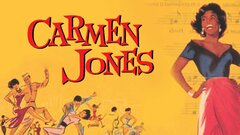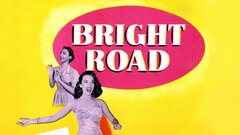Dorothy Dandridge was an American actress, singer, and dancer who was able to break the color barrier in the entertainment industry, becoming a massive, Oscar-nominated star, and paving the way for other African-American stars to follow in her example.
Born on November 9, 1922 in Cleveland, OH, Dorothy and her sister Vivian were groomed for stardom from a young age by their mother, Ruby, herself an aspiring entertainer. Ruby created a song and dance act for the kids under the name The Wonder Children, and the sisters toured the Chitlin Circuit for much of their childhood.
The Great Depression dried up their work opportunities, so Ruby moved Dorothy and Vivian to Hollywood in 1930, where she found steady work in radio and film, while Dorothy attended McKinley Junior High School. In 1934, The Wonder Children were rechristened The Dandridge Sisters, and Dorothy and Vivian were joined by schoolmate Etta Jones.
For several years, The Dandridge Sisters were a huge hit, headlining shows at the Cotton Club and the Apollo Theater, and appearing in films, including the Our Gang short "Teacher's Beau" (1935) and the Marx Brothers comedy "A Day at the Races" (1937), stoking Dorothy's interest in acting.
Her first credited film role came in the crime drama "Four Shall Die" (1940), but most of Dorothy's early roles banked on her success as a singer, including roles in "Hit Parade of 1943" (1943), which matched her up with Count Basie, and "Atlantic City" (1944), which paired her with Louis Armstrong.
Dorothy courted controversy when she starred as Queen of the Ashuba in "Tarzan's Peril" (1951), due to the film's "blunt sexuality" and her character's "provocatively revealing" costumes. That same year, Dorothy would appear on the cover of Ebony magazine, but also go through her first divorce, following a nine-year marriage to dancer Harold Nicholas.
Unbeknownst to the public, their marriage had never recovered following the birth of their daughter, Harolyn Suzanne, who was born brain damaged and required constant care. Despite these personal setbacks, Dorothy continued to perform live and record albums, while also growing her film presence; she worked with Harry Belafonte for the first time in the drama "Bright Road" (1953).
Her next role, however, would prove to be a groundbreaker. Dorothy was cast as the titular role in "Carmen Jones" (1954), a screen adaptation of Oscar Hammerstein II's Broadway musical, which updated Georges Bizet's opera "Carmen" to World War II, and utilized a cast of all-black actors. Directed by Otto Preminger (who became Dorothy's lover and career ward for many years), the film was a huge hit, making Dorothy an overnight sensation, and leading to her becoming the first black woman to be nominated for Best Actress at the Academy Awards.
Unbeknownst to the public, as her career was blowing up in 1955, she became pregnant with Preminger's child, but was forced by her new studio, 20th Century Fox, with whom she had signed a three picture deal, to have an abortion.
Meanwhile, she reunited with Harry Belafonte for the acclaimed drama "Island in the Sun" (1957), before starring in "Porgy and Bess" (1959), for which she received rave reviews, but was forced to suffer through a difficult production, which marked the end of both her professional and romantic relationships with Preminger.
Rough times lay ahead for Dorothy: her second marriage, to hotel magnate Jack Denison, ended in 1962 with an acrimonious divorce rife with financial squabbles and allegations of domestic violence. That same year, Dorothy discovered that her business handlers had swindled her out of $150,000, and that she was $139,000 in debt for back taxes.
In the aftermath, Dorothy was forced to sell her Hollywood mansion, place her daughter in a state mental institution, and move into a small apartment. To add insult to injury, she would never work again: that year's "Malanga" (1962), a seedy foreign production that Dorothy was deeply embarrassed of, would prove to be her final screen appearance.
Towards the end of her life, Dorothy developed a dependence on antidepressants, but also did admirable advocacy work on behalf of the National Urban League and the NAACP. She was mounting a comeback when she died of an accidental overdose on September 8, 1965, one day before she was to fly to New York City to prepare for a singing engagement at Basin Street East. Dorothy Dandridge was 42 years old.




























































































































